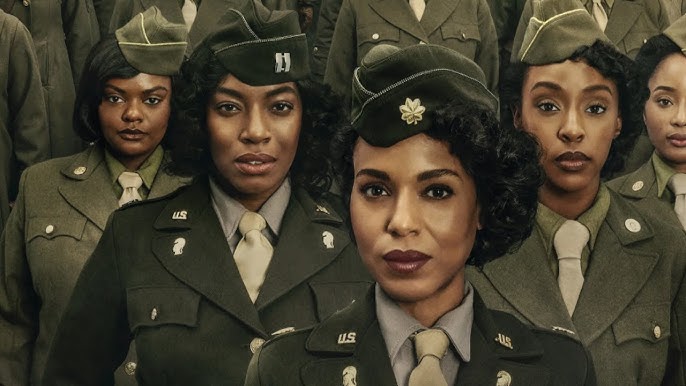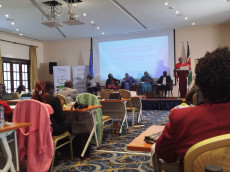- Despite facing racism and sexism, the courageous service of the 6888th challenged and transformed America's perceptions of who could be a soldier. During World War II, the U.S. Army struggled with a shortage of personnel managing postal services abroad, making the battalion's role crucial.
In celebration of Black History Month, it's essential to recognize films that highlight the significant events and contributions of the Black community. One such film is "Six Triple Eight,” directed by Tyler Perry.
Released in 2024, "Six Triple Eight" tells the inspiring story of the 6888th Central Postal Directory Battalion of the U.S. Women's Army Corps (WACs) during World War II. Formed in 1944 and led by Major Charity Adams Earley, this unit comprised 855 women, predominantly African American, who sorted and delivered mail for American troops stationed in Europe.
Despite facing racism and sexism, the courageous service of the 6888th challenged and transformed America's perceptions of who could be a soldier. During World War II, the U.S. Army struggled with a shortage of personnel managing postal services abroad, making the battalion's role crucial.
After completing basic training in Georgia, the unit departed the United States on February 3, 1945, arriving in the United Kingdom on February 12. They were promptly transported to Birmingham, where they worked tirelessly—seven days a week, in three shifts, processing and delivering vital mail to troops fighting on the front lines.
Once they resolved the mail backlog in Birmingham, the 6888th crossed the English Channel to Le Havre, France, on June 8, 1945, to tackle another pressing mail crisis.
Read More
In February 1946, with the war concluded, the unit returned to the United States and was disbanded, but their legacy endures. "Six Triple Eight" not only honors these remarkable women but also serves as a reminder of their vital contributions to history.
This Black History Month, take the time to watch "Six Triple Eight" and reflect on the resilience and achievements of the Black community throughout history.












